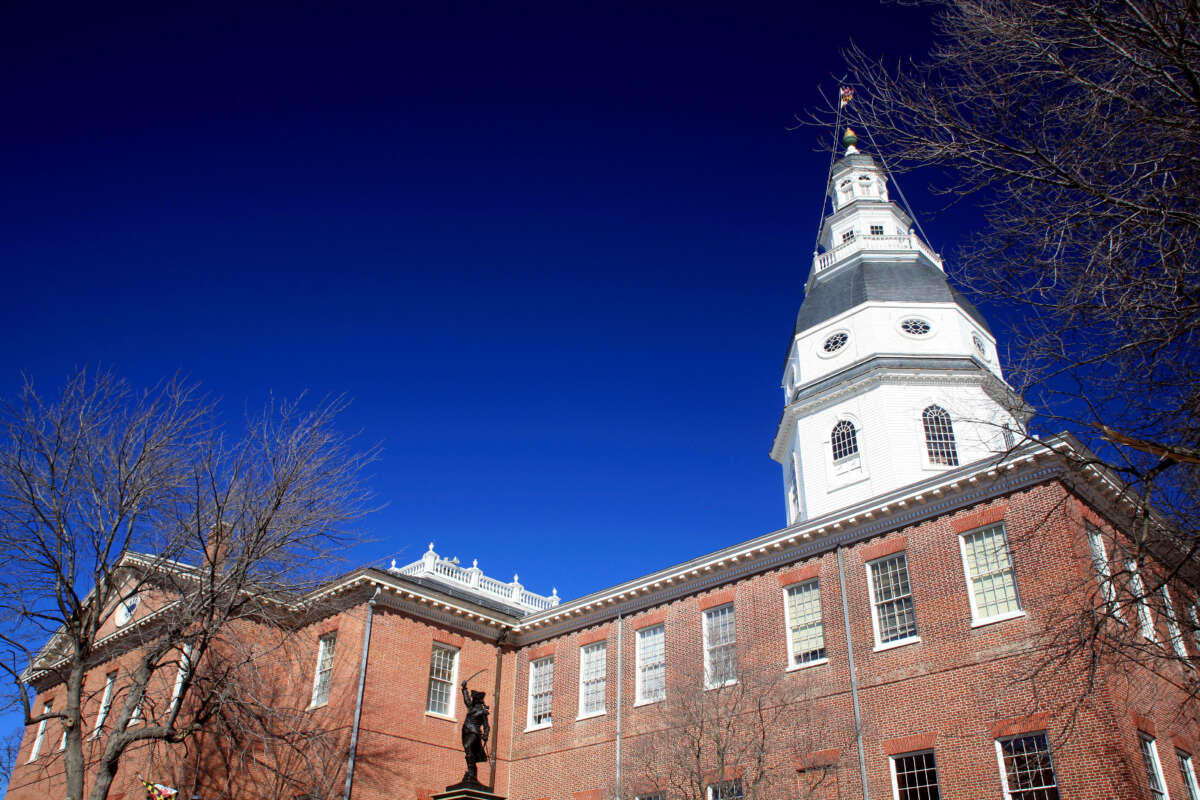The Maryland state Senate approved a measure on Tuesday that would protect patients who seek gender-affirming care in the state from any criminal, civil, or administrative actions, even if such records are sought in investigations originating from other states. The measure, SB 0119, received a 33-13 vote in favor from the Democrat-controlled Senate and now moves to the state House.
“If passed, this bill would not only protect providers from criminal and civil suits due to laws in other states, but would also protect the healthcare information of patients within the state of Maryland,” LGBTQ+ legislative researcher Allison Chapman told Truthout.
According to the Movement Advancement Project (MAP), Maryland is already one of 14 states — and D.C. — that have implemented “shield laws” that protect access to gender-affirming care. In June, Democratic Gov. Wes Moore issued an executive order aimed at safeguarding individuals who either receive or provide gender-affirming care in Maryland against legal or disciplinary actions instigated by other states. The legislation approved by the Senate would codify these protections into Maryland state law.
“Transgender people’s access to best-practice health care — sometimes also called gender-affirming care — is increasingly under attack,” MAP says on its website. “These ‘shield’ or ‘refuge’ laws can vary from one state to the next, but their primary goal is to protect transgender people, their families, and their medical providers against these ongoing attacks and to protect access to transgender-related health care.”
In response to states imposing restrictions and bans on abortion care, Maryland enacted a law last year to safeguard abortion rights within the state. SB 0119 would include gender-affirming care as a form of protected health care within the existing statute.
“This legislation simply adds gender-affirming treatment to what is already in statute as legally protected health care, legally protected health care that we placed into statute last year to ensure that women that need abortions can have privacy in their own medical records from being transferred out of state or being accessed by out of state entities,” Clarence Lam (D) said.
Twenty-two states currently have restricted or banned gender-affirming care for transgender youth, according to MAP. As a result, numerous transgender youth and their families have been compelled to seek care in other states or even flee from their home states entirely. Laws like SB 0119 would protect transgender youth and their families from investigations originating from their home states.
“For example, if a person travels from a state where transgender healthcare is banned and receives that care in another state, a ‘shield’ law can protect the recipient and/or provider of that healthcare against civil or criminal charges from the state where healthcare is banned,” MAP explains on its website.
Last November, Texas Attorney General Ken Paxton demanded private information concerning transgender patients from Texas who accessed gender-affirming care at clinics in Georgia and Seattle. These requests spurred a lawsuit from one clinic and elicited outcry from LGBTQ activists. “Republicans are attempting to investigate and potentially arrest people across state lines for providing trans care,” transgender journalist and activist Erin Reed said on social media in November.
SB 0119 would protect transgender youth who access gender-affirming care in the state from such investigations.
“Texas Attorney General Ken Paxton has been on a rampage requesting patient data from clinics across the country in an apparent attempt to gather massive amounts of data on trans people, this law will prevent that from happening in Maryland,” Chapman told Truthout. “This is an incredibly strong law and I urge the Maryland House to swiftly pass this measure.”
We’re not backing down in the face of Trump’s threats.
As Donald Trump is inaugurated a second time, independent media organizations are faced with urgent mandates: Tell the truth more loudly than ever before. Do that work even as our standard modes of distribution (such as social media platforms) are being manipulated and curtailed by forces of fascist repression and ruthless capitalism. Do that work even as journalism and journalists face targeted attacks, including from the government itself. And do that work in community, never forgetting that we’re not shouting into a faceless void – we’re reaching out to real people amid a life-threatening political climate.
Our task is formidable, and it requires us to ground ourselves in our principles, remind ourselves of our utility, dig in and commit.
As a dizzying number of corporate news organizations – either through need or greed – rush to implement new ways to further monetize their content, and others acquiesce to Trump’s wishes, now is a time for movement media-makers to double down on community-first models.
At Truthout, we are reaffirming our commitments on this front: We won’t run ads or have a paywall because we believe that everyone should have access to information, and that access should exist without barriers and free of distractions from craven corporate interests. We recognize the implications for democracy when information-seekers click a link only to find the article trapped behind a paywall or buried on a page with dozens of invasive ads. The laws of capitalism dictate an unending increase in monetization, and much of the media simply follows those laws. Truthout and many of our peers are dedicating ourselves to following other paths – a commitment which feels vital in a moment when corporations are evermore overtly embedded in government.
Over 80 percent of Truthout‘s funding comes from small individual donations from our community of readers, and the remaining 20 percent comes from a handful of social justice-oriented foundations. Over a third of our total budget is supported by recurring monthly donors, many of whom give because they want to help us keep Truthout barrier-free for everyone.
You can help by giving today. Whether you can make a small monthly donation or a larger gift, Truthout only works with your support.
